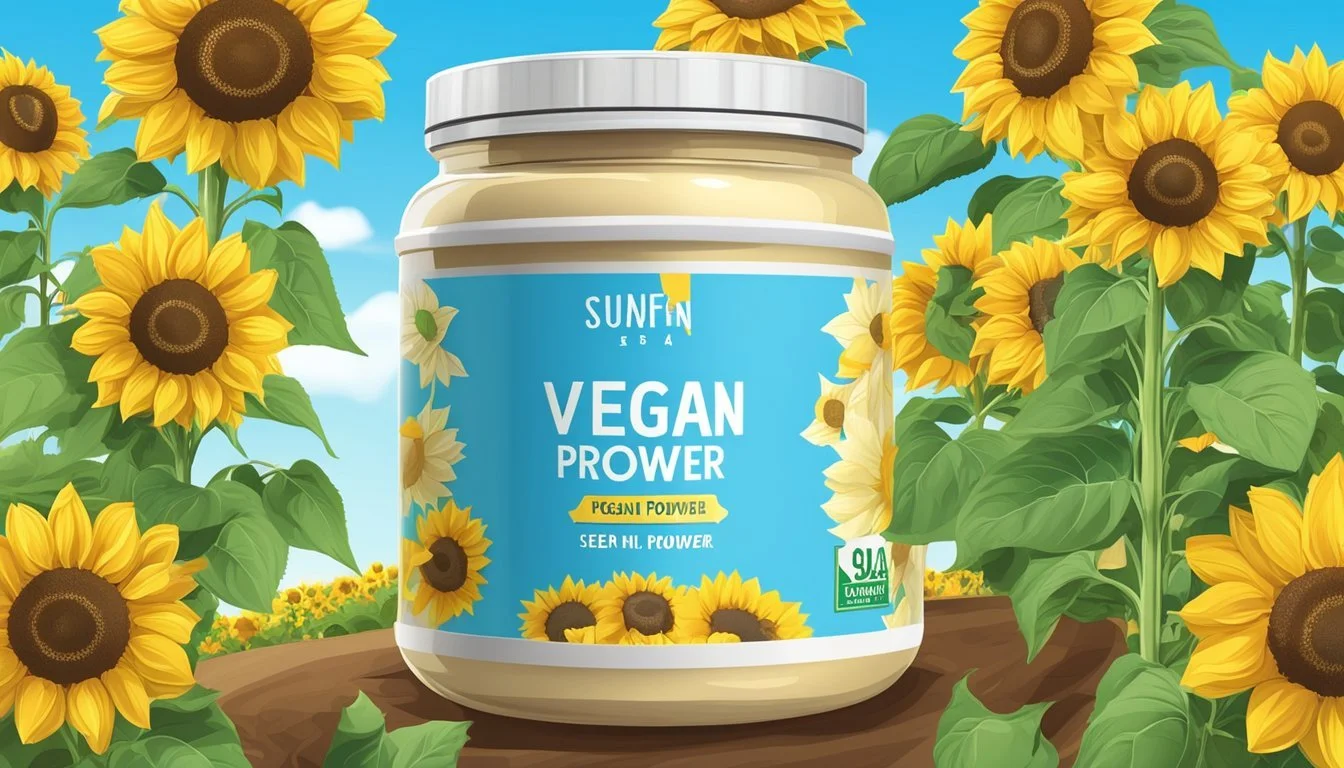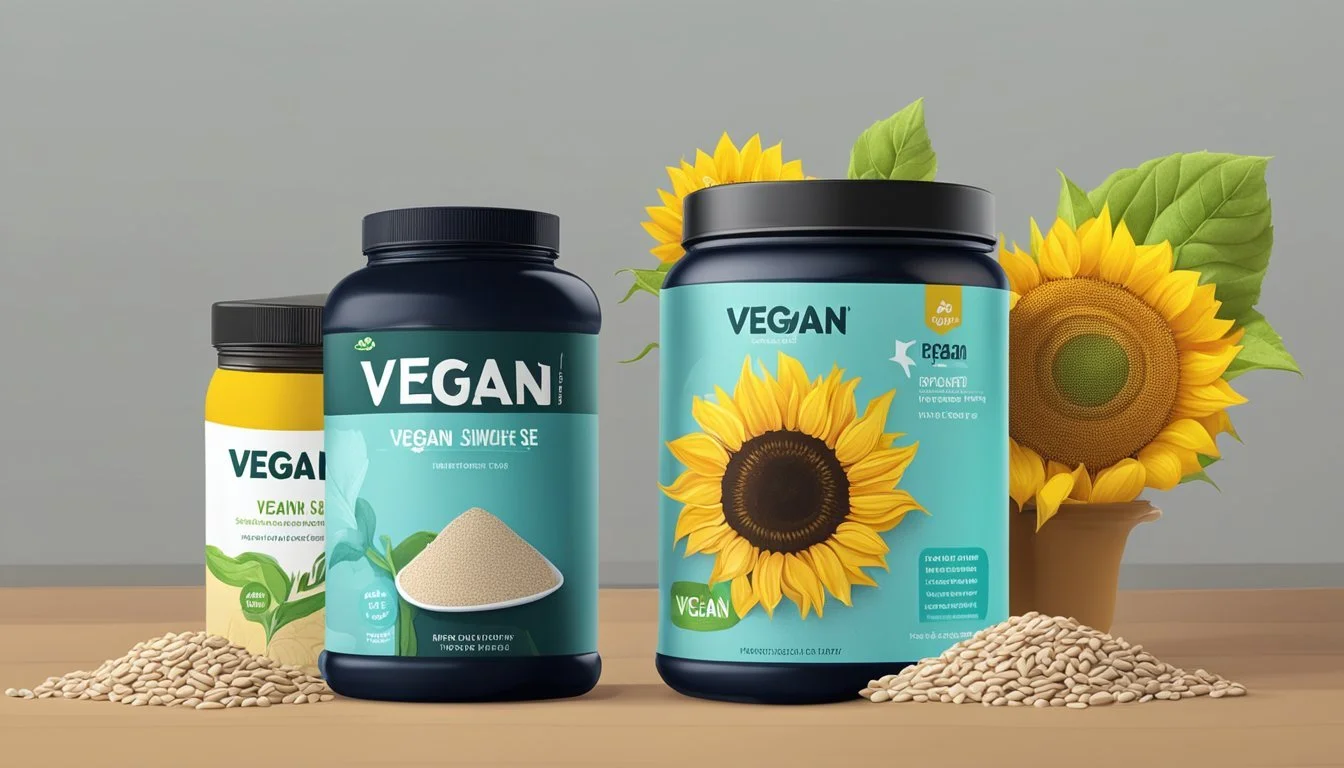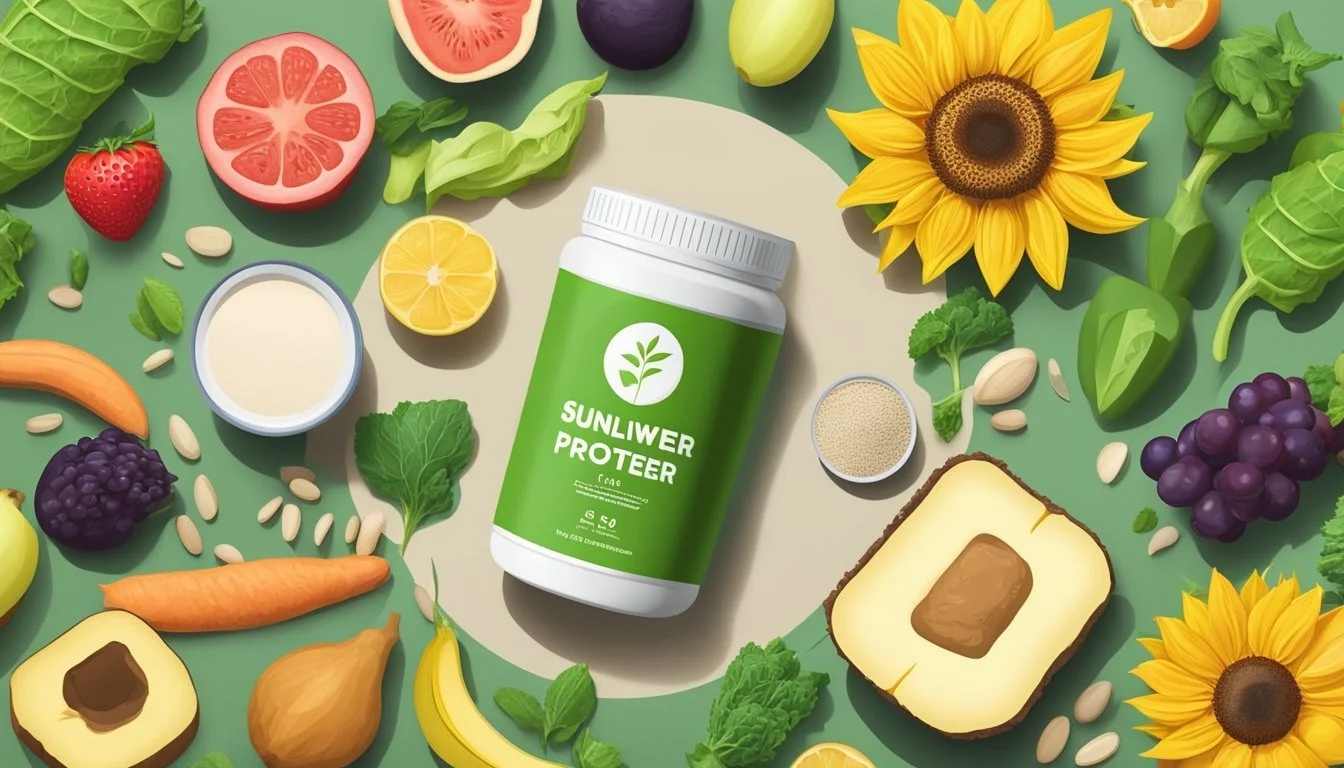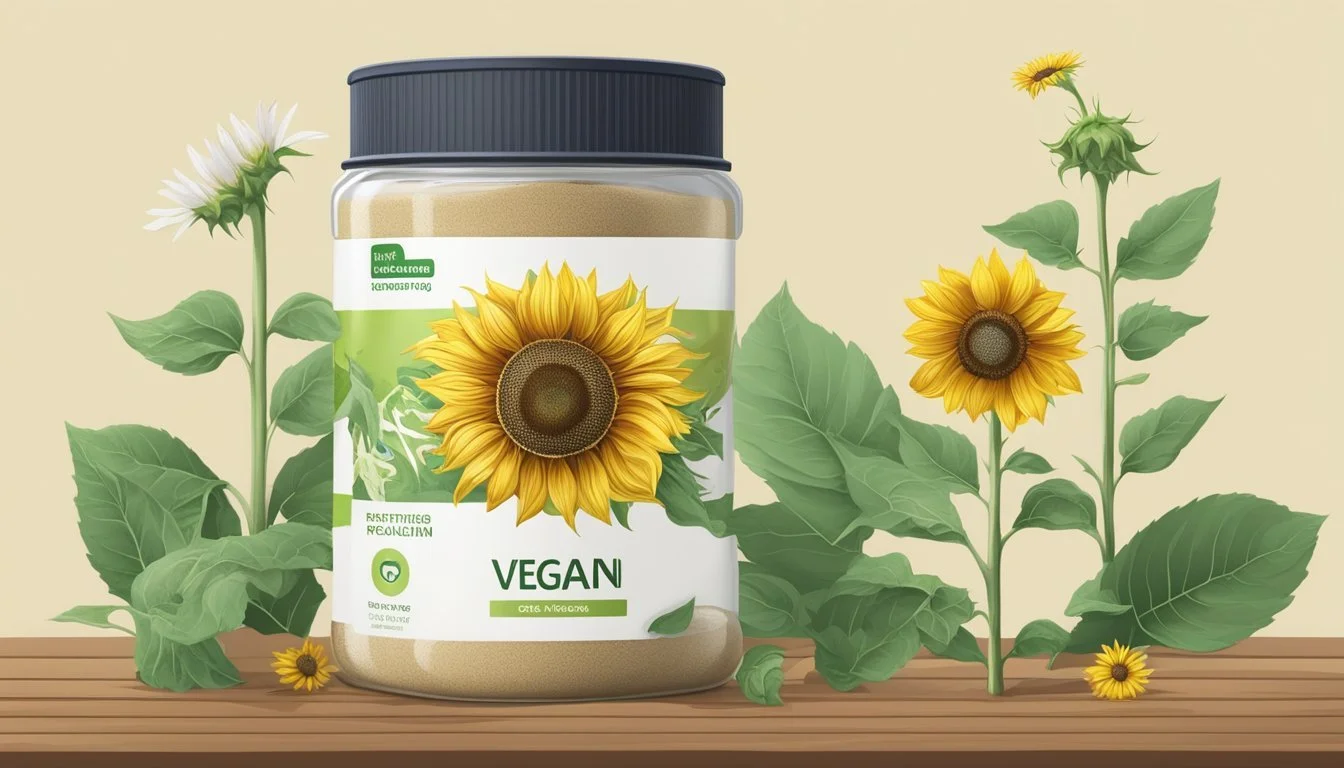Is Sunflower Seed Protein Powder Vegan?
Unveiling the Truth about Plant-Based Proteins
Sunflower seed protein powder is indeed a vegan source of protein, aligning perfectly with a plant-based lifestyle. Extracted from the seeds of the sunflower plant, this protein powder is a relatively new addition to the vegan protein supplement market. As a vegan product, it eschews the use of any animal-derived ingredients, which is a common requirement for those following a vegan diet. It offers a sustainable alternative to traditional animal-based proteins, catering to those who are environmentally conscious and seek to avoid animal products for ethical reasons.
The amino acid profile of sunflower seed protein is comparable to other plant-based proteins, making it a viable option for muscle repair and growth. Its nutritional value does not fall short, as a serving typically contains a substantial amount of the protein required daily for maintaining and building lean muscle. With its rise in popularity, sunflower seed protein powder is becoming readily available and is often included in ready-to-consume vegan protein blends found in health food stores and online.
The production process of sunflower seed protein powder involves isolating protein from the seeds without the use of chemicals that may compromise its vegan status. This ensures that the resulting protein powder maintains its natural integrity without additives or processing agents derived from animal sources. For vegans looking for a clean, whole-food protein source, sunflower seed protein powder stands out as a strong candidate, free from common allergens such as dairy, soy, and gluten.
What Is Sunflower Seed Protein Powder?
Sunflower seed protein powder emerges as a distinct choice within the array of plant-based protein supplements available on the market, providing a sustainable and vegan protein source.
Definition and Production
Sunflower seed protein powder is derived from the seeds of the sunflower plant. The production involves pressing the seeds to extract the oil, with the remaining defatted seed material being dried and ground into a fine powder. This process forms a concentrated protein powder while largely reducing oil content.
Nutritional Profile
Sunflower seed protein powder is known for its high protein content and is considered a complete protein as it supplies all essential amino acids. A single serving generally contains about 13 grams of protein and approximately 90 calories. In addition to protein, it is endowed with dietary fiber, vitamins, minerals, and also contains compounds that act as antioxidants.
Comparison to Other Plant-Based Protein Powders
Compared to other popular plant-based proteins, like pea protein, sunflower seed protein powder also offers a complete amino acid profile. It differs notably in its attributes, such as having a rich lysine content—an amino acid critical for muscle repair and growth. Unlike other seed-based proteins, it is often praised for its digestibility and mild flavor, making it a versatile ingredient for various dietary preferences.
Benefits of Sunflower Seed Protein Powder
Sunflower seed protein powder offers a substantial nutritional profile that caters specifically to vegan dietary needs, providing essential proteins and nutrients that are crucial for various bodily functions.
Muscle Growth and Recovery
Sunflower seed protein powder is an excellent resource for individuals looking to support muscle growth and recovery. It typically contains around 13 grams of protein per quarter cup, which is instrumental in the repair and building of muscle tissue after exercise.
Complete Amino Acid Profile
One of the standout features of sunflower seed protein powder is its complete amino acid profile, meaning it contains all nine essential amino acids that the body cannot synthesize on its own. This quality makes it a valuable plant-based protein source that can effectively support the body's various functions.
Vitamin and Mineral Content
Sunflower seed protein powder is not only about protein; it also boasts a rich content of vitamins and minerals. In addition to its protein content, it provides important nutrients like vitamin E, B vitamins, magnesium, and phosphorus, which play roles ranging from antioxidant defense to energy metabolism.
Vegan Considerations for Protein Powders
When examining vegan protein powders, consumers should take into account the type of ingredients used, the verification process ensuring a product is genuinely vegan, and the range of plant-based proteins available.
Common Ingredients in Vegan Protein Powders
Vegan protein powders often incorporate a diverse array of plant-based protein sources. Pea protein is commonly used due to its high protein content and favorable amino acid profile. Soy protein is another popular choice, offering a complete set of amino acids and is comparable to whey in protein quality. Hemp protein, less common but valued for its omega fatty acids, provides a moderate amount of protein with the added benefit of dietary fiber. Rice protein is also seen, frequently blended with pea protein to improve the amino acid profile. Other vegan protein sources include pumpkin seed protein, known for its rich mineral content, and quinoa protein, which is a complete protein containing all nine essential amino acids.
Ensuring a Vegan Product
To ensure that a protein powder is vegan, one should look for certifications such as Vegan Action or The Vegan Society which attest to a product's compliance with vegan standards. Reading ingredient lists is essential; additives like honey, gelatin, or certain vitamin forms may be derived from animal sources. Many brands will also provide a non-GMO, organic, and gluten-free status to cater to wider dietary considerations, highlighting their commitment to natural and ethical production practices.
Alternative Vegan Protein Sources
In addition to the more common vegan protein ingredients, consumers may seek out alternative sources for diversity or due to allergies. Sunflower seed protein is an emerging option offering a significant protein punch post oil extraction. Other alternatives may include algae-based proteins like spirulina and chlorella. Each protein source can vary in its amino acid profile, taste, and solubility, providing consumers with various options to meet their dietary and nutritional needs.
Flavor and Texture of Protein Powders
Protein powders, including those derived from sunflower seeds, vary in flavor and texture, which can significantly influence their palatability and versatility in recipes.
Flavored vs. Unflavored Options
Flavored protein powders often incorporate natural or artificial ingredients to enhance taste, such as vanilla, chocolate, or fruit extracts. Unflavored options, on the other hand, lack these taste-enhancing additives, providing a more neutral profile that is versatile for blending with other ingredients in shakes or meals without impacting the overall flavor.
Flavored: Chocolate, Vanilla, Berry, etc.
Unflavored: Pure protein with no added flavors.
Impact of Sweeteners and Additives
The texture of protein powders is influenced by the presence of sweeteners and other additives. Stevia, a natural sweetener, is frequently used in vegan protein powders to improve taste without adding sugar. However, some users report a distinct aftertaste that might affect the overall flavor. Powders with added sugar may offer a more pleasant taste, but also contribute additional calories.
Sweeteners: Stevia, Monk Fruit, Erythritol, etc.
Additives: Gum blends (for smoothness), inulin (for fiber).
Additives can also modify the texture, with some powders formulated to dissolve easily, ensuring a smooth texture, while others might be clumpier or require more vigorous mixing to achieve a consistent blend.
Health and Dietary Considerations
When considering sunflower seed protein powder, individuals should take into account allergen information, recommended protein intake from dietitians, and the role of fiber in their diet to make an informed decision.
Allergen Information
Sunflower seed protein powder typically offers a beneficial choice for those with common allergens as it is gluten-free, dairy-free, and soy-free. However, individuals with specific allergies to seeds should be cautious and verify product labeling to ensure no cross-contamination.
Dietitian Insights on Protein Intake
Dietitians often recommend consuming protein in moderation within the range of 10-35% of daily caloric intake to support overall health. Sunflower seed protein powder can be a relevant part of a vegan diet due to its high protein content, designed to support muscle growth and maintenance.
Daily Protein Goal: If a 1/4 cup serving contains 13 grams, one can easily calculate daily servings based on individual protein needs.
The Role of Fiber
Sunflower seed protein powder, in addition to providing protein, contributes to the dietary fiber requirement, which is crucial for maintaining healthy digestive functions.
Fiber Content: It’s important to note the fiber amount per serving listed on the nutritional label, as fiber supports heart health by helping to manage cholesterol levels within the body.
Purchasing and Using Sunflower Seed Protein Powder
When selecting a sunflower seed protein powder, consumers face a variety of options. The choice hinges on the product's quality, label accuracy, and suitability for inclusion in diets and shakes.
How to Choose a Quality Product
When deciding on a sunflower seed protein powder, potential buyers should consider reviews and third-party testing to ensure quality. It is imperative to opt for products from reputable brands that are transparent about their sourcing and manufacturing processes. Ingredients should be scrutinized for additives or fillers that might compromise the product's purity. A consumer's budget and protein needs should also align with the product selected.
Reading Labels and Understanding Claims
Labels reveal important information about the ingredients and nutritional content of sunflower seed protein powder. They should list all ingredients clearly and indicate whether the product is free from common allergens. Claims such as "non-GMO," "organic," or "vegan" should be backed by certifications from credible organizations. Serving size is also crucial to understand how much protein one is getting per serving.
Incorporating Into Diets and Shakes
Sunflower seed protein powder can seamlessly integrate into an individual's diet. Its subtle flavor makes it a versatile addition to shakes, smoothies, and even baked goods. One can tailor the amount used to meet specific protein needs. For a simple shake, mix the protein powder with water, non-dairy milk, or a favorite beverage. To enhance the flavor and nutritional value, blend with fruits or other superfoods.
Safety and Regulatory Considerations
When considering the safety of sunflower seed protein powder, it is essential to examine the regulatory standards set by authoritative bodies such as the FDA and analyze reports from third-party testing that assess the presence of contaminants like heavy metals.
FDA Guidelines and Third-Party Testing
The Food and Drug Administration (FDA) does not formally approve dietary supplements like sunflower seed protein powder before they reach the market. However, manufacturers must ensure their products are safe and labeled correctly. Third-party testing is a credible way to verify a product's safety and quality, providing an unbiased assessment of whether the sunflower protein powder adheres to regulatory guidelines and meets the declared specifications. Many conscientious manufacturers seek certification from organizations like the Food Safety Authority (FSA) to validate their compliance.
Contaminants and Heavy Metals
Contaminants and heavy metals can inadvertently appear in dietary supplements, posing health risks if consumed in significant quantities. Rigorous testing is necessary to detect and measure levels of potential contaminants such as lead, mercury, cadmium, and arsenic.
Lead: Tolerable levels are set to minimize exposure.
Mercury: Stringent guidelines restrict its presence.
Cadmium: Regular testing ensures levels remain low.
Arsenic: Assessment of inorganic vs. organic forms is critical as inorganic arsenic is more harmful.
Manufacturers must regularly test their products and provide transparent results to ensure that any trace of heavy metals does not exceed safety thresholds.
Environmental and Ethical Aspects
Sunflower seed protein powder, favored for its nutritional qualities, also carries benefits regarding sustainability and ethical production. These aspects are pivotal for consumers who prioritize environmental responsibility and ethical standards in their dietary choices.
Sustainability of Sunflower Seed Farming
Sunflower seed farming can be an environmentally friendly practice, with non-GMO and organic methods reducing the ecological footprint. Organic farming excludes the use of synthetic fertilizers and pesticides, aligning with the principles of sustainability. Furthermore, sunflower seeds have a relatively low water footprint compared to other crops, which contributes to their sustainability profile.
Water usage: Sunflowers have a natural resistance to drought, requiring less irrigation.
Pesticide and fertilizer requirements: Organic sunflower seeds are grown without synthetic inputs, reducing soil and water contamination.
The use of non-GMO seeds ensures that the sunflower plants are not genetically modified, preserving biodiversity and natural plant integrity. This is also a requirement for obtaining USDA Organic certification, which many consumers look for as an assurance of sustainable agricultural practices.
Ethical Sourcing and Manufacturing
The ethical sourcing and manufacturing of sunflower seed protein powder concern the fair treatment of workers and the impact of production methods on local communities.
Labor practices: Ethical manufacturers ensure fair wages and safe working conditions for farmers and workers involved in the production process.
Community impact: Respectful sourcing involves supporting the local economy without causing harm to the community's resources or well-being.
Sunflower seed protein is often processed using methods that aim to minimize energy consumption and carbon emissions, furthering its ethical appeal. Manufacturers may also engage in additional practices, such as:
Reducing waste: Implementing production techniques that minimize waste generation.
Sustainable packaging: Utilizing recyclable or biodegradable materials for packaging.
By focusing on both sustainability and ethical sourcing, sunflower seed protein powder manufacturers offer a product that meets the ethical and environmental standards demanded by increasingly conscientious consumers.
Conclusion
Sunflower seed protein powder emerges as a valuable plant-based supplement suitable for vegans. This product results from separating oil from sunflower seeds to yield a high-protein content. It is a clean and sustainable protein source corresponding with vegan dietary principles.
A distinct advantage is its contribution to muscle building and overall health. Key benefits include:
High Protein Content: Typically offering around 13 grams of protein per quarter cup, it assists in meeting daily protein needs.
Nutrient Rich: In addition to protein, sunflower seed protein provides fiber, healthy fats, and essential vitamins and minerals.
Low in Calories: With only about 90 calories per serving, it supports those mindful of their caloric intake.
Muscle Growth Support: The amino acid profile aids in muscle repair and growth.
Allergen Friendly: Devoid of common allergens like gluten, dairy, and soy, making it an excellent choice for individuals with dietary restrictions.
The sustainability aspect reflects in the efficient use of sunflower seed by-products, ensuring minimal waste. Anyone on a vegan diet can confidently incorporate sunflower seed protein powder into their routine, benefiting from its nutritional profile and alignment with vegan values.











